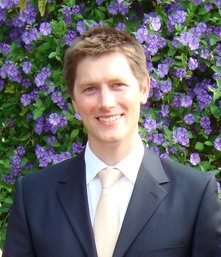
|

|
|
|
I am a Senior Lecturer in Chemical Engineering in the School of Chemical Engineering and Analytical Science at the University of Manchester. In 2011 I commenced a five year EPSRC Challenging Engineering award which builds on the group's initial successful EPSRC First Grant, Royal Society Research Grant and several EPSRC Industrial CASE awards. The fundamentals of transport processes within multiphase systems are studied with a view to apply new insights to intensify bioprocessing and to find new applications for bioproducts. Biosurfactants are our principal focus of activity. We are working in collaboration with Croda as a potential manufacturer and Unilever as a potential consumer to use our research to bridge the technology gaps which currently exist. We have three targets:
We are engaged in numerous research projects with Unilever our Centre for Advancement of Structured Liquid Engineering (CASTLE). We utilise leading equipment from bench to production scale to study formulation, equipment characterisation, mixing, scale up and product measurement. Current work is focusing on the advanced application of Electrical Resistance Tomography for online and inline characterisation and control of processes. In 2010 we launched a major collaborative project with oil and gas equipment manufacturer Cameron to improve understanding of multiphase phenomena within one of their key technology innovations: the PureMEG™ process. Crystallisation, sedimentation, slurry flow and more combine to make a novel process for removing salt scale from monoethylene glycol reclamation processes to improve the economic, environmental and operating performance of subsea gas pipelines. Cameron have donated to the University a three story £900k pilot plant process as part of the EPSRC Knowledge Transfer Account project which now forms a key element of the School's large scale research and undergraduate teaching activity. | |
|
|
